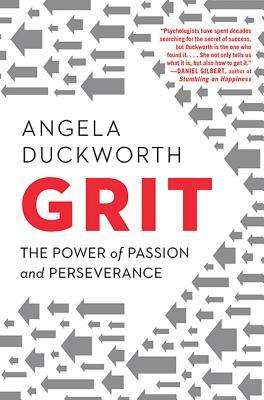
Review
Grit is an excellent book with useful and actionable messages about what makes people successful. The primary hypotheses of the book centres around the concept of grittiness, which is the willingness to power through a challenging situation. The higher your grit score is, the more likely that you would succeed in your endeavour.
This idea is a modern rehash of the classic stoicism principles with a massive amount of anecdotes. If you are familiar with Seneca and Marcus Aurelius, this book has little to offer you aside from the modern context.
The redeeming quality of the book is the stuff other than just the concept of grit, where we would learn what kind of other attributes that make someone grittier than others.
Rating: 4 stars out of 5 stars
Summary
In general, people agree that effort is more important than raw talent. However, when given a choice to recruit either a talented or determined candidate, they would overwhelmingly choose the talented candidate, which seems to show that we have an innate preference towards the talented.
Effort
The “Effort” is a multiplier for both skill and talent, which means you would gain greater benefit when you increase your effort. To me, this doesn’t mean much if we agree that innate talent is a constant, and skill is a derivative of talent. The only variable in the equation is the effort, so it is the only one you can influence.
A super talented athlete who trains with low effort might get beaten by mildly talented one who works hard. However if the former trains with higher energy, she might be unbeatable by the latter.
The moral is that since talent is static, just don’t worry about it. If you put high enough effort, you would be good at something. The problem is that talent puts a ceiling for your accomplishment. If you are ok with not being world class, feel free to put effort into an activity that you aren’t talented at. For me, it is writing ;)
Sticking with it
Consistency is key. Doing small thing frequently is much better than doing a big thing once in a while.
A big goal of becoming a doctor is too high-level to visualise easily. Break down the goal into mid-level goals, e.g. pass the exam, and then to low-level goal, e.g. study chapter 12-15.
You will much more likely to stick with your plan if you love what you do, thus doing something you like is the key. On a poll, only 13 percent of US workers feel engaged with their work. With that attitude, it would be tough to improve consistently, which is good news because this means you have 87 percent chance to outperform your coworkers for the promotion if you love your job.
People have more than one thing they love. You don’t have to search for the ‘one true thing’ to love. Just something good enough would do. The quest for searching ‘one true thing’ follows a diminishing return curve.
One great predictor of ‘one true thing’ is that if you can think the calling to benefit other people. Jobs that is low pay, but serves the community tends to have much higher satisfaction, e.g. school teacher and zookeeper. These jobs give a greater sense of purpose in life and belief that they are making the world a better place.
If you are not a zookeeper, don’t despair. Even within the same job, different people would find a different meaning.
Practice
Now that you found the thing that you love, and you are having fun doing it, how do you improve?
There is a famous saying in software engineering field:
you could have ten years experience, or 1 year of experience repeated ten times.
The most significant difference is ‘Deliberate Practice’ where you go over the things you suck at and keep doing it until you improve. Malcolm Gladwell’s Outlier explored this concept with the 10,000 hours deliberate practice rule.
One thing you need to do to practice deliberately is to keep track of progress. If you are lifting weight, write down your reps and sets. Make charts to see your progression. If there is a particular lift that you aren’t progressing, change your routine so that you are doing extra volume on the muscle group.
Having a master of the craft to give you constant feedback is critical. By yourself, you won’t be able to notice slight mistakes that get repeated over an extended period. A master would see that and help you correct your course.
How to raise your kids to be gritty
Since talent is static, never tell your kids that they are brilliant. Smart kids who don’t know the value of hard work tend not to endure when things get hard.
Instead of saying, “You’re a natural, I love that,” you should tell your kids, “You’re a learner, I love that!”
Immersing yourself in a gritty culture helps you to be grittier. Lets say your personal running record is 5 miles, if you run with a group of friends who usually runs 8 miles, you would be working really hard to keep up and finish the 8 miles.
Set examples of a gritty culture for your kids. Make it a rule for the entire family to self-select one ‘hard thing’ to stick with for a determined period. Let the kids select it, and your job is to help them keep doing it until the time is up and to make sure they don’t quit.
If little Jane selected Basketball but wanted to quit after two weeks, kindly let her know that she can only stop after finishing the season. If little Sophia learns ballet, she has to stick with it until the scheduled talent show.
Of course, the parents need to set a good example and show grit, or it will all be for naught.


